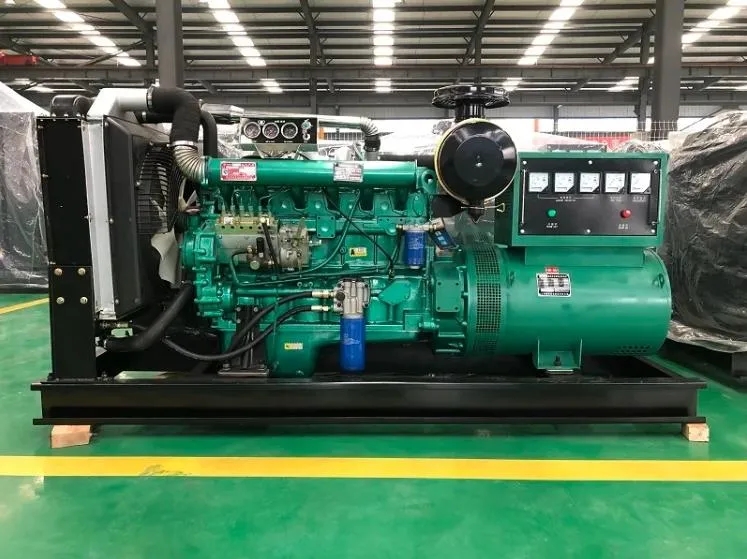Leblanc
0 Course Enrolled • 0 Course CompletedBiography
Diesel Generators for Disaster Relief A Crucial Tool in Times of Crisis
Introduction
In times of natural disasters such as hurricanes, earthquakes, floods, and wildfires, access to reliable sources of power is essential for ensuring the safety and well-being of affected populations. When the electrical grid is disrupted, diesel generators play a crucial role in providing emergency power to critical infrastructure, shelters, hospitals, and communication systems. This article explores the importance of diesel generators in disaster relief efforts, their key features and benefits, as well as best practices for their deployment and maintenance.
Importance of Diesel Generators in Disaster Relief
During natural disasters, the loss of electricity can have severe consequences, including the disruption of essential services such as water supply, medical care, and communication networks. Diesel generators serve as a reliable source of backup power, ensuring that critical infrastructure remains operational and that emergency response efforts can be effectively coordinated.

One of the key advantages of diesel generators is their ability to provide continuous power for extended periods of time. Unlike other forms of backup power such as batteries or solar panels, diesel generators can run for days or even weeks on a single tank of fuel, making them well-suited for prolonged emergency situations.
In disaster-affected areas where access to fuel may be limited, diesel generators can also be crucial for powering essential equipment such as water pumps, refrigeration units, and medical devices. The versatility and robustness of diesel generators make them a valuable asset in disaster relief operations, helping to save lives and mitigate the impact of natural disasters on affected communities.
Key Features and Benefits of Diesel Generators
Diesel generators offer a range of features and benefits that make them well-suited for disaster relief operations. Some of the key advantages of diesel generators include:
1. Reliability: Diesel generators are known for their reliability and durability, making them a dependable source of backup power during emergencies. They are designed to start quickly and provide continuous power even in harsh environmental conditions.
2. Fuel Efficiency: Diesel generators are more fuel-efficient than gasoline generators, allowing them to run for longer periods of time on a single tank of fuel. This fuel efficiency is especially important in disaster-affected areas where fuel may be scarce or difficult to obtain.
3. Power Output: Diesel generators are capable of providing high power output, making them suitable for powering a wide range of equipment and devices. They can be used to supply electricity to critical infrastructure, emergency shelters, and communication systems during disaster relief operations.
4. Longevity: Diesel generators are built to last and can withstand heavy use over extended periods of time. With proper maintenance and care, diesel generators can provide reliable backup power for many years, making them a cost-effective investment for disaster relief organizations.
5. Portability: Diesel generators come in a range of sizes and configurations, making them easy to transport and deploy in emergency situations. Portable diesel generators can be quickly set up in disaster-affected areas to provide immediate power where it is needed most.
Best Practices for Diesel Generator Deployment and Maintenance
To ensure the effective use of diesel generators in disaster relief operations, it is important to follow best practices for their deployment and maintenance. Some key considerations for deploying and maintaining diesel generators in emergency situations include:
1. Site Selection: When deploying diesel generators, it is important to choose a suitable site that is well-ventilated and away from flammable materials. The generator should be placed on a stable surface to prevent tipping or vibration-related damage.
2. Fuel Management: Proper fuel management is essential for ensuring that diesel generators have an adequate fuel supply to operate during emergencies. Organizations should establish fuel storage protocols and regularly monitor fuel levels to prevent shortages.
3. Maintenance Schedule: Regular maintenance is crucial for keeping diesel generators in optimal working condition. Organizations should establish a maintenance schedule and conduct routine inspections, oil changes, and filter replacements to prevent breakdowns and ensure reliable performance.
4. Training and Safety: Proper training on the operation and safety procedures of diesel generators is essential for personnel involved in disaster relief operations. Operators should be familiar with the generator's controls, emergency shutdown procedures, and safety precautions to prevent accidents and injuries.
5. Testing and Load Management: Regular testing of diesel generators is important to verify their performance and ensure that they can provide the required power output during emergencies. https://www.lkpowerplant.com/160kw-400kw/ is also critical for preventing overloading and ensuring the generator's capacity matches the demand.
Conclusion
Diesel generators play a vital role in disaster relief efforts by providing emergency power to critical infrastructure, shelters, hospitals, and communication systems. Their reliability, fuel efficiency, power output, longevity, and portability make them an indispensable tool for mitigating the impact of natural disasters on affected communities.
By following best practices for the deployment and maintenance of diesel generators, disaster relief organizations can ensure that these valuable assets are ready to provide essential backup power when it is needed most. With proper planning, training, and maintenance, diesel generators can help save lives, support emergency response efforts, and facilitate the recovery and rebuilding process in the aftermath of natural disasters.
